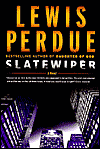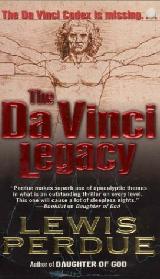Yes, I know that "dumb bureaucrat" is redundant. But, just in the nick of time the California state government has arrived and they're here to save us from ourselves. Again.
By declaring that competitions among home winemakers are illegal.
This
story from The Santa Rosa Press-Democrat (the only real newspaper in Sonoma County) says it all.
Read it.
Weep.
Then let's ALL have a tasting of homemade wines at our homes. We need to set a date and then notify the bureaucrats. Let them come after
ALL of us. Would make for some great YouTube Vids.
Home wine ruling a shockOrganizers and others stunned that state ABC would say events like Harvest Fair are against the lawBy KEVIN MCCALLUM
THE PRESS DEMOCRAT
Home winemaking competitions abound in California.
From the Sonoma County Harvest Fair in the heart of Wine Country to the massive California Exposition & State Fair in Sacramento, fairs around the state recognize the skills of thousands of amateur vintners.
Numerous private winemaking clubs also hold regular contests so their members can see how their vintages stack up.
But they all have one thing in common: They're all illegal.
That's what state Department of Alcoholic Beverage Control officials have told an Illinois man who wants to hold a home winemaking competition in Santa Rosa this summer.
"We told them it's illegal," said Matthew Seck, chief of the trade enforcement division of the ABC.
State law creates an exemption from California's alcohol licensing laws for home winemakers who produce up to 200 gallons a year -- but only if they are making it for their own consumption.
The exemption was essentially California's way, after regulation of alcohol fell to the states following the repeal of Prohibition, of continuing the federal exemption for home winemaking.
The problem is that the exemption is a very narrow one that does not allow people to share the wine they produce with others or remove it from the place where it was produced, Seck said.
Word of the state's position spread quickly though the ranks of the passionate home winemaking community, particularly in California, where hobbyists have access to some of the best grapes in the world and craft wines in garages, basements and barns.
"It doesn't make sense to most people, but that's what the law is," Seck said.
Seck declined to say what type of enforcement the agency might take against an amateur wine judging event. He said he was unaware such events take place at county and state fairs, and had never received a complaint against one.
But when the ABC receives a complaint or becomes aware that laws are being broken, it has an obligation to act, he said.
Threat of prosecution
In an e-mail to the Santa Rosa event's organizer, Joel Sommer, ABC investigator David Wright was clear there could be consequences.
"If you decide to hold your event please be advised that it will be without Department consent or authorization and could result in criminal prosecution," Wright wrote.
That got Sommer's attention.
The resident of St. Libory, Ill., and a self-described "Web entrepreneur" operates a winemaking Web site called WinePress. He was shocked by the response and baffled given the proliferation of other such events across the state, including the state's own fair.
"I was just trying to do everything legally," he said.
Sommer has held home winemaking competitions in Denver, Baltimore and St. Louis in recent years, and was looking forward to holding his first event in California. But the legal opinion threw his whole plan into question.
Many visitors to Sommer's Web site rallied to his defense, digging up legal research and offering support and strategic suggestions. Many suggested the ABC official was off base or overstepping his authority.
"This guy is drunk on power," wrote one poster.
The ABC's stance flies in the face of reality and years of history and tradition, said Nancy Vineyard, co-owner of The Beverage People, a home brewing and winemaking supply company in Santa Rosa.
"If that's the case, then just about every county fair and club across the state is breaking the law," she said.
"I've never heard anything like it," said Bob Bennett, an avid home winemaker from Healdsburg and head of the Garage Enologists of North County. "I can't think of why he's any different than the other (competitions)."
Such competitions are crucial for home winemakers to get feedback on their wines from experts in the field, said Fred Millar, president of the Sacramento Home Winemakers. He noted that many of the best professional winemakers started out as hobbyists.
"I'm really concerned. I think this could have a chilling effect on the whole industry," he said.
Others suggested Sommer just ignore the ABC and hold his event as planned.
"It's silly and it's a technicality and nobody really cares," said Andy Coradeschi, former president of Cellarmasters Home Wine Club of Los Angeles, which has held a competition for 34 years and last year judged about 220 wines.
Help from legislators
Seck declined to say whether county fairs or the upcoming California Exposition & State Fair's Home Wine competition would violate the law. He said he was unaware they held home winemaking events.
But legislators are moving quickly to make sure the flap doesn't interfere with the summer fair season. After receiving calls from home winemakers across California, state Sen. Pat Wiggins, D-Santa Rosa, is proposing urgency legislation to fix the problem.
"I think there is a concern that some of these events may have to cease without this kind of bill," Wiggins spokesman David Miller said.
Next week, Wiggins will introduce a bill, SB 607, that would add home winemakers to a section of the law giving greater latitude to home brewers. Current law for beer allows "personal or family use" and lets home brewers remove their brews "from the premises where manufactured for use in competition at organized affairs, exhibitions or competitions."
Adding wine to this section should resolve the issue, Miller said.
As "urgency" legislation, the bill requires a two-thirds majority to pass, but would take effect immediately upon the governor's signature.
Despite the warnings from the ABC earlier this year, Sommer remained undeterred and continues planning his event. The fact that he has already paid deposits to the Flamingo Conference Resort & Spa has motivated him, too.
He continues to "move full speed ahead" for the event, called WineFest, and hopes to get 150 people to attend.
The threat of prosecution initially made some posters on Sommer's site question whether attending was worth the risk. But most saw the threat as hollow and the risk minimal, he said.
"If they make an example out of me, fine, but at least we get the law changed," he said.
 Article, San Francisco Chronicle today, predicts that at least two of the following might be in bankruptcy by the end of this year: United, Continental, American, Northwest, US Airways and Delta.
Article, San Francisco Chronicle today, predicts that at least two of the following might be in bankruptcy by the end of this year: United, Continental, American, Northwest, US Airways and Delta. Article, San Francisco Chronicle today, "Virgin America stymied in its attempts to obtain additional routes."
Article, San Francisco Chronicle today, "Virgin America stymied in its attempts to obtain additional routes."







